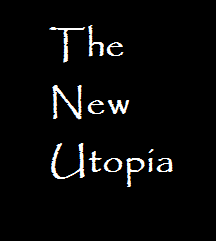
Biography
A Hungarian immigrant of Jewish origin. He moved from Hungary to the United States when he was eighteen and settled there. Professor at State University of New York Upstate Medical University in Syracuse, New York. Became famous for anti – psychiatry movement although on many occasions he distances himself from it.
Ideas
Considered by many libertarian he was one of the rare kind that are not afraid to go against the dogmas entrenched in our perception. In one book after another he exposes the state trying to rob us of our own freedoms and basic rights. The irony of our modern times is that people who consider themselves “liberals” demand from the state even more involvement in our private affairs. In the 60’s there were many people that warned us about the dangerous consequences of the paternalistic mentality. Among his books are “The Myth of Mental Illness”, “Our Right to Drugs”, “Ceremonial Chemistry”, “Anti – Freud” and many others.
Freud
His assault to the “father” of the modern psychotherapy is straightforward and elaborated. He accuses Freud of using “scientific-sounding” metaphors to represent real processes in the mind. Another interesting fact is that Freud was practicing hypnosis and that later on morphed into his method of psychoanalysis, which after all is a simple conversation. That may shock many people, who are led to believe otherwise by obscured and pompous “terms”, borrowed from the medical jargon.
Psychiatry
Presenting a detailed history of this field he exposes its hidden agenda and treacherous ground in many of his books. Dr Szasz reveals that the purpose of this branch of medicine is to confine people who are not acting within the accepted norms. He gives examples with the Soviet Union where people were put in prison just because they were not happy with the existing system. The analogy with the Western countries may send shivers down one’s spine. Another topic, which he brings forward is the fact that the chemical substances (prescription drugs) are given in abundance by the practitioners without considering the long term effect.
State
The original ideas, which he wrote about back in the 60’s, cannot be matched even up to these days. He draws attention to the role of the state in the psychiatry, drug war and chemistry while constantly reminding us that is a relatively recent phenomenon of our century. Fast forward to this day and we realize that we are already encircled by the all – pervasive shadow of the state which considers us immature to act and make judgments on our own. Szasz often refers to the paternalistic inclinations in our nature, especially its far reaching consequences when we handle over (and give readily) our sovereignty to the state.
You can read about the legacy of Thomas Szasz on this website.
